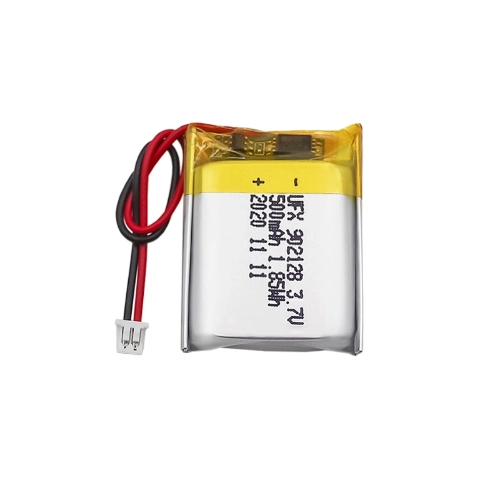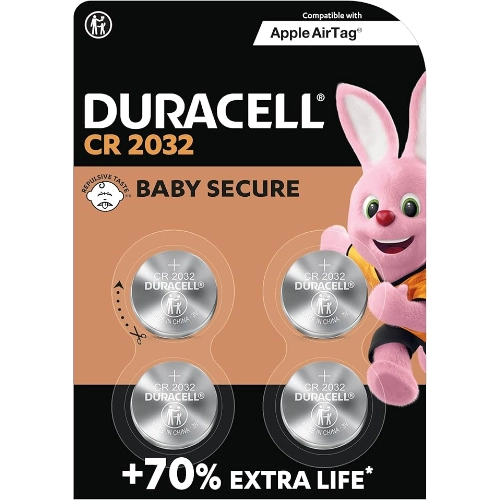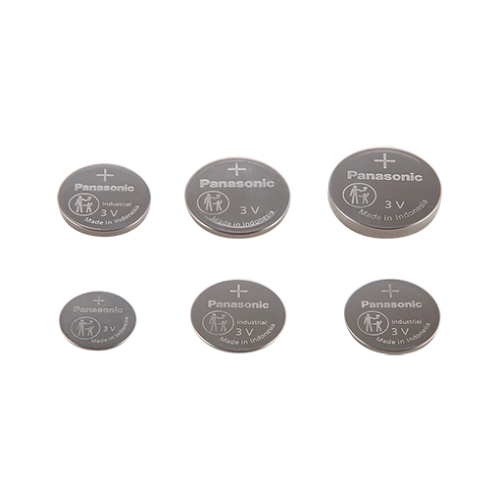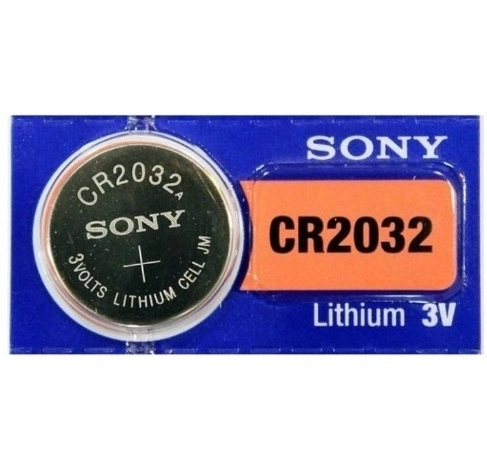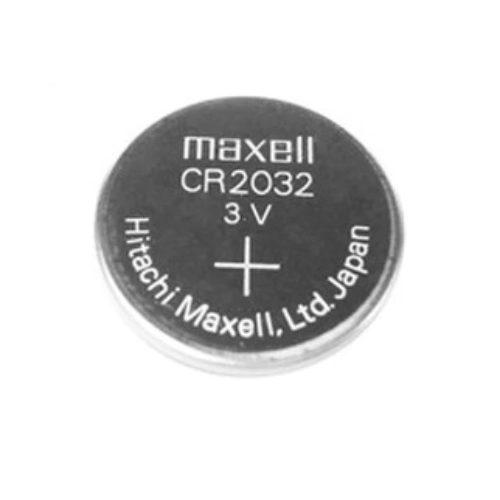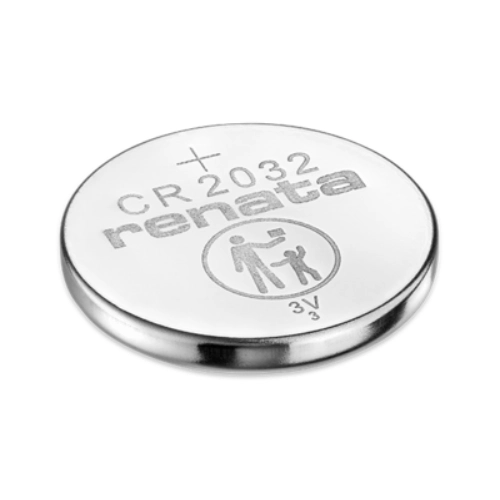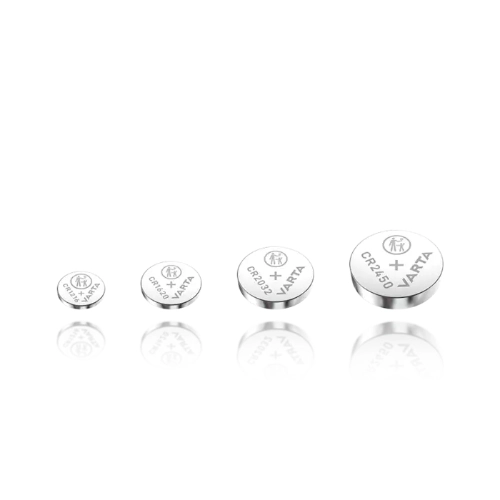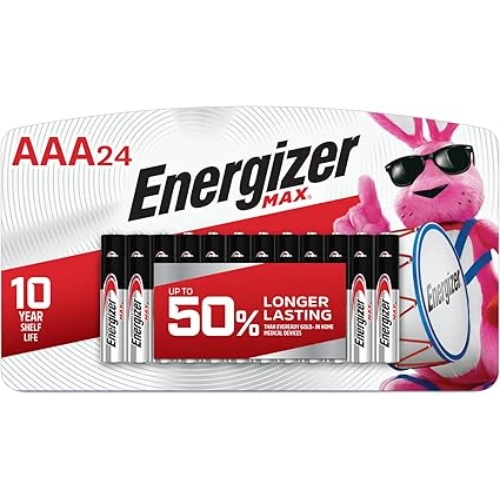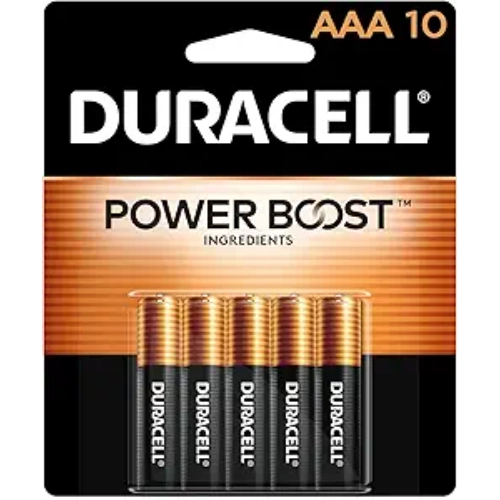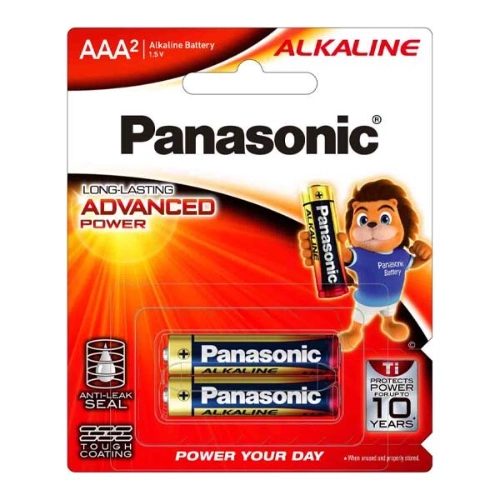Blood glucose level tests are essential to determine the current level of diabetes. One of the most important but underrated aspects is the glucose meter battery. To check your body’s glucose levels, it is crucial to always select an excellent battery that delivers the right power for the meter to operate as required anywhere without failure.
Keep reading for more details and learn what batteries we have selected as the best for your glucose meter!
Part 1. Types of batteries used in glucose meters
Glucose meters have various types of batteries, and the most common types include:
- Lithium batteries
- Alkaline batteries
- Silver Oxide batteries
- Zinc-Air batteries
- Rechargeable batteries
Part 2. Top 10 recommended glucose meter batteries
1. Ufine 3.7 V 500mAh Lithium Ion Battery
Specifications
- Voltage: 3.7V
- Capacity: 500mAh
- Max Charge Voltage: 4.2V
- Discharge current: 500mA
- Temperature: -20℃ to 60℃
Pros
- Functions in extreme cold up to -40℃
- Stable voltage for consistent power
- Long cycle life enhances cost efficiency
- Built-in overcharge and short-circuit protections
Cons
- Limited cycle life beyond 500 cycles
- You may need specific chargers for optimum life
Applicable blood glucose meter types
- One Touch
- Accu-Chek
- Contour
2. Duracell CR2032 Lithium Battery
Specifications
- Voltage: 3V
- Composition: Lithium
- Quantity: 4 batteries per pack
- Shelf Life: 10 years
- Other Use: Apple AirTag, key fobs, medical devices
Pros
- Up to 70% extra life compared to standard batteries
- Baby Secure Technology helps prevent accidental swallowing
- Durable packaging ensures safety and longevity
- Trusted brand known for reliability and performance
Cons
- It may be overkill for low-drain devices
Applicable blood glucose meter types
- OneTouch
- Accu-Chek
3. Panasonic CR2032 Lithium Battery
Specifications
- Voltage: 3V
- Capacity: 225mAh
- Diameter: 20mm
- Height: 3.2mm
- Temperature: -30 to 85°C
Pros
- Long shelf life ensures reliability for extended periods
- Wide temperature range for diverse applications
- The low self-discharge rate for consistent performance
- Its compact size makes it ideal for various devices
Cons
- Not suitable for high-drain devices
Applicable blood glucose meter types
- OneTouch
- Accu-Chek
- Contour
4. Sony CR2032 Lithium Battery
Specifications
- Type: Lithium Ion
- Voltage: 3V
- Size: 20mm x 3.2mm (standard coin cell dimensions)
- Weight: 0.71 ounces
- Recommended Uses: Watch, Computer
Pros
- Superior storage capacity enhances usability
- Long shelf life ensures reliable backup energy
- Provides high energy with a continuous voltage supply
- Ideal temperature resistance for diverse applications
Cons
- Not rechargeable
- Limited capacity for high-drain devices
Applicable blood glucose meter types
- Accu-Chek
- Freestyle
5. Maxell CR2032 Lithium Battery
Specifications
- Type: Lithium Coin Cell
- Voltage: 3V
- Assurance: 10 years
- Compatible: CR2032
Pros
- Long shelf life ensures reliability
- Its lightweight design makes it suitable for portable devices
- Standardized size fits various applications
- Provides stable power for low-drain devices
Cons
- Not rechargeable
- Limited capacity for high-drain devices
Applicable blood glucose meter types
- One Touch
- Freestyle
6. Renata CR2032 Lithium Battery
Specifications
- Type: Lithium Coin Cell
- Voltage: 3V
- Capacity: 260mAh
- Weight: 2.80g
- Dimensions: Diameter 20.0mm, Height 3.2mm
Pros
- Compact size fits various small devices
- Reliable voltage for consistent performance
- Lightweight, making it ideal for portable applications
- Long-lasting power suitable for low-drain devices
Cons
- Not rechargeable
- Limited power for high-drain applications
Applicable blood glucose meter types
- Freestyle
- Accu-Chek
- One Touch
7. Varta CR2032 Lithium Battery
Specifications
- Type: Lithium Coin Cell
- Shelf Life: Up to 10 years
- Packaging: Child-proof
- Discharge Type: Pulse and continuous
- Applications: Key fobs, remote controls, smart home devices
Pros
- High capacity for longer runtime
- Up to 70% more energy compared to standard batteries
- Low internal resistance minimizes self-discharge
- Meets high safety standards and independent test lab approval
Cons
- Not suitable for high-drain devices
- Requires careful handling due to child safety
Applicable blood glucose meter types
- One Touch
- Contour
8. Energizer AAA Alkaline Battery
Specifications
- Type: Alkaline AAA
- Voltage: 1.5V
- Pack Size: 24 batteries
- Storage Life: Up to 12 years
- Leak Protection: Up to 2 years after use
Pros
- Long-lasting power, ideal for frequent use
- Holds charge well in storage
- Leak-resistant design protects devices
- Great value for a large pack
Cons
- Limited effectiveness in high-drain devices
- Higher price compared to some generic brands
Applicable blood glucose meter types
- Accu-Chek
- Contour
9. Duracell AAA Alkaline Battery
Specifications
- Type: Alkaline AAA
- Voltage: 1.5V
- Duralock Technology: Prevents leakage and extends shelf life
- Pack Size: 8 batteries
- Ideal For: Low to moderate drain devices
Pros
- Reliable Duracell quality at an affordable price
- Long shelf life due to Duralock technology
- Suitable for everyday low-drain devices
- Easy to find in multiple pack sizes
Cons
- Limited performance in high-drain devices
- Non-rechargeable
Applicable blood glucose meter types
- Contour
- One Touch
10. Panasonic AAA Alkaline Battery
Specifications
- Type: Alkaline AAA
- Voltage: 1.5V
- Cell Size: 10.5mm × 44.5mm
- Weight: 11g per cell
- Pack Size: 2 batteries
Pros
- Consistent power for digital devices
- Lightweight and portable
- Affordable price for everyday use
- Easy to find and replace
Cons
- Limited battery life in high-drain devices
- Not rechargeable
Applicable blood glucose meter types
- Freestyle
- One Touch
- Accu-Chek
Part 3. Factors to consider when choosing a glucose meter battery
Here are key factors to keep in mind when selecting the correct battery for your glucose meter:
- Compatibility: This should be a feature where you ensure that the battery chosen fits your make and model of the glucose meter.
- Battery Life: Battery usage per charge given by glucose meter batteries varies. You should choose one that closely matches your testing frequency.
- Temperature: Different batteries can stand at different temperature levels. If it’s warm or cold in your area, select a kind that will excel during extreme temperatures.
- Availability: Some battery types are harder to find. Opt for a readily available battery, especially if you need frequent replacements.
- Cost-effectiveness: Consider the upfront cost and the replacement frequency, balancing durability with affordability.
Part 4. FAQs
-
What kind of battery is in a glucose meter?
Glucose meters use either lithium, alkaline, or silver oxide batteries. -
What is the battery life of a glucometer?
Battery life lasts a few months to a year with regular testing. -
What kind of battery does the OneTouch glucometer use?
The OneTouch glucometer commonly uses a CR2032 lithium coin cell battery. -
When should I replace my glucometer battery?
Replace the battery when your device starts losing power quickly after charging. -
How do I change the glucometer battery?
To change the battery, open the battery compartment on your glucometer, remove the old battery, and insert a new one.
Related Tags:
More Articles

Paper Battery vs. Flexible Battery: What’s the Difference and Which Is Better?
Paper vs. flexible batteries: learn the key differences, benefits, and which power source fits best for wearables, sensors, and smart tech.
What to Know Before Buying a Tiny LiPo Battery for Your Project
Tiny LiPo batteries are powerful and compact. Learn how to choose the right one for your project with specs, safety, and charging tips.
Bloated LiPo Battery: Will It Explode?
Will a bloated LiPo battery explode? Discover the causes, risks, safety steps, and expert tips to avoid disaster and protect your gear. Must-read safety guide!
12V 100Ah Lithium Ion Battery Price: Full Guide
Learn about 12V 100Ah lithium-ion battery price, from cost ranges to best brands, hidden fees, and how to get the best deal. A must-read for smart buyers!
Resistance and Conductivity: What It Means for Your Lithium Batteries
Resistance and conductivity impact lithium battery performance, lifespan, and safety—learn how they work and why they matter.
